Explore 5 Reasons a Work Visa to Europe May be Denied.
Exploring the captivating allure of Europe’s Schengen Area is a dream for many travelers. However, before embarking on this journey, it’s crucial to understand the common stumbling blocks that often result in Schengen visa denials. From incomplete paperwork to insufficient ties with your country of origin, numerous factors can influence the outcome of your visa application.
The Schengen Area, encompassing 26 European nations, presents a remarkable opportunity for travelers to traverse multiple countries with a single visa. Nevertheless, acquiring a Schengen visa is not always a straightforward process, and visa refusal is a disappointing setback encountered by many applicants.Familiarizing yourself with the prevalent reasons behind Schengen visa denials can significantly enhance your chances of a successful application.
Outlined below are ten common reasons for Schengen visa rejections, with particular attention to India’s standing in Schengen visa refusal statistics and issues related to visa processing delays:
-
-
- Incomplete or Falsified Documentation: Submission of deficient, inaccurate, or fabricated documents, such as incomplete application forms or counterfeit supporting materials like bank statements or accommodation reservations, often leads to visa rejection.
- Financial Insufficiency: Applicants must demonstrate their financial capability to sustain themselves during their Schengen stay. If provided financial documents such as bank statements or pay slips fail to meet the prescribed minimum, the visa application may be declined.
- Lack of Travel Insurance: Comprehensive travel insurance covering medical emergencies and repatriation is obligatory for Schengen visa applicants. Failure to furnish adequate insurance or presenting a policy that does not align with Schengen requirements can result in visa refusal.
- Questionable Travel Itinerary: A coherent and feasible travel itinerary, comprising clear entry and exit dates, destinations, and transportation arrangements, is imperative. An ambiguous or implausible itinerary can raise suspicions regarding the purpose of the visit, leading to visa denial.
- Inadequate Proof of Accommodation: Failure to provide confirmed hotel reservations or a formal invitation from a host in the Schengen Area can cast doubt on the legitimacy and purpose of the trip, potentially resulting in visa rejection.
- Unclear Explanation of Travel Purpose: The purpose of the trip must be clearly articulated in the visa application, whether it pertains to tourism, business, medical treatment, or event attendance. An unclear or inconsistent explanation may prompt authorities to reject the application.
- Weak Ties to Home Country: Applicants must establish strong ties to their home country, such as familial, professional, or property-related commitments, to assure authorities of their intention to return post-visit. Failure to demonstrate these ties can lead to visa refusal.
- Criminal History or Security Concerns: A criminal record or indications of security threats may prompt visa rejection, as Schengen countries prioritize safety and security for both residents and visitors.
- Past Overstays or Visa Violations: Previous instances of overstaying or breaching visa regulations in any country can significantly diminish the likelihood of obtaining a Schengen visa.
- History of Visa Rejections: A track record of prior visa denials, particularly within a short timeframe, may raise doubts regarding the applicant’s intentions and credibility, potentially resulting in another rejection.
-
Showcase Your Skills: Dedicate a section to list both technical skills and interpersonal abilities relevant to the job role. Tailor this section for each application to align with the employer’s requirements.
By following these steps, you can develop a compelling resume that effectively showcases your skills and experiences. Remember to customize your resume for each application to ensure alignment with the employer’s expectations.
Identifying Lucrative Job Sectors in Europe:
Certain job sectors in Europe boast high demand, offering numerous employment opportunities. If you possess the requisite skills for these sectors, your chances of securing employment in Europe significantly increase. Explore these lucrative job sectors and their corresponding salary ranges:
- Information Technology (IT) Specialists (€46,000 – €55,000): The increasing digitalization trend in Europe has elevated the demand for IT specialists who create and manage computer systems to streamline operations.
- Lawyers (€94,000 – €117,000): Legal expertise is highly sought after across various sectors, particularly during times of legal complexities, contributing to a substantial demand for lawyers in Europe.
- Education Facilitators (€52,000 – €64,000): Teaching English, in particular, presents promising opportunities for foreigners in Europe due to the global significance of the language in business.
- Healthcare Specialists (€86,000 – €93,000): With an aging population and a robust healthcare system, Europe witnesses a consistent demand for healthcare professionals like doctors and nursesIf Europe beckons you for job prospects, connect with MetaVISA to pave your way towards a successful career on the continent.
Networking
Building a strong professional network is invaluable when seeking employment opportunities in Europe Here’s why networking is essential:
- Access to Hidden Job Opportunities: Often, job openings are shared within networks before being publicly advertised, providing you with access to exclusive opportunities.
- Knowledge Acquisition: Networking enables you to learn insights and trends in your field from peers, enhancing your professional growth.
- Positive References: Your network can vouch for your capabilities and recommend you to potentialemployers, bolstering your credibility in the job market.
Obtaining Your Work Visa: The Final Step to Your European Job:
Upon securing a job offer in Europe, obtaining the requisite work visa becomes paramount. Here’s why it’s crucial and how to navigate the process:
1. Visa Requirements:
- Understanding Country-Specific Regulations: Visa prerequisites and application procedures vary across European countries, necessitating thorough research.
- Research: Explore the specific visa requirements of your destination country, utilizing resources such as the embassy or consulate.
2. Steps to Obtain Your Work Visa:
- Secure a Job Offer: Begin by obtaining a job offer aligning with your qualifications from a European employer.
- Application Submission: Submit your visa application to the relevant authorities in your designated ncountry of employment.
- Documentation: Prepare necessary documents including your job offer letter, educational credentials, passport, and other specified requirements.
- Background Checks: Anticipate undergoing background checks to ensure compliance with legal criteria.
- Approval and Issuance: Upon approval, you’ll receive your work visa stipulating your authorized duration of stay and work privileges.
3. Visa Processing Time:
- Plan Ahead: Given the variability in visa processing times, initiate the application process well in advance of your intended start date to ensure timely acquisition.
In conclusion, embarking on a successful career in Europe necessitates a comprehensive understanding of visa requirements, exploration of job opportunities, and cultivation of a robust professional network. With the right approach and determination, you can fulfill your aspirations of a flourishing career in Europe. Are you ready to seize this opportunity?



